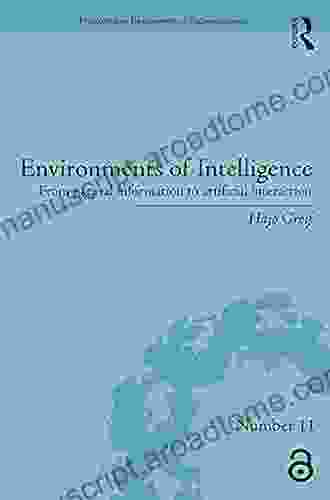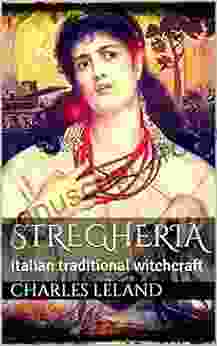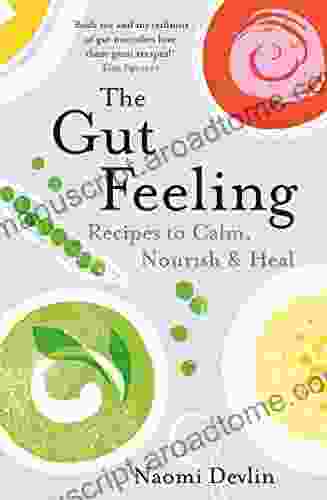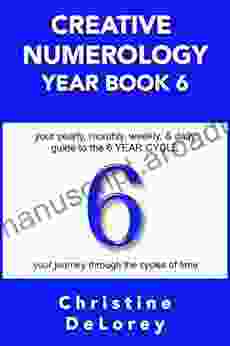From Natural Information to Artificial Interaction: History and Philosophy

4.4 out of 5
| Language | : | English |
| File size | : | 1917 KB |
| Text-to-Speech | : | Enabled |
| Screen Reader | : | Supported |
| Enhanced typesetting | : | Enabled |
| Word Wise | : | Enabled |
| Print length | : | 230 pages |
Information is a fundamental aspect of our universe. It is found in the natural world, in the form of DNA, RNA, and other biological molecules. It is also found in the artificial world, in the form of computer code, digital images, and other digital artifacts.
The history of information is long and complex. It began with the development of writing, which allowed humans to record and transmit information for the first time. Over time, new technologies such as the printing press and the computer made it possible to store and transmit ever-increasing amounts of information.
The philosophy of information is a relatively new field of study. It explores the nature of information, its relationship to other concepts such as knowledge and meaning, and its implications for our understanding of the world.
This book explores the history and philosophy of information, from its natural origins to its artificial manifestations in the digital age. It argues that information is a fundamental aspect of reality, and that it plays a key role in our understanding of the world.
The Natural Origins of Information
Information is a fundamental aspect of the natural world. It is found in the DNA of every living organism, and it is essential for the functioning of cells and organisms.
DNA is a molecule that contains the instructions for building and maintaining an organism. It is made up of four different types of nucleotides: adenine, thymine, guanine, and cytosine. The sequence of these nucleotides determines the genetic code of an organism.
The genetic code is read by cells to produce proteins. Proteins are the building blocks of cells and they play a vital role in all aspects of cellular function.
Information is also found in other biological molecules, such as RNA and proteins. RNA is a molecule that helps to translate the genetic code into proteins. Proteins are molecules that perform a wide variety of functions in cells, including structural support, catalysis, and signaling.
The Artificial Manifestations of Information
In the digital age, information is no longer confined to the natural world. It is also found in the artificial world, in the form of computer code, digital images, and other digital artifacts.
Computer code is a set of instructions that tells a computer what to do. It is made up of a series of commands that are executed by the computer in Free Download to perform a task.
Digital images are made up of a series of pixels, which are small squares of color. The arrangement of these pixels determines the image that is displayed on the screen.
Other digital artifacts include text documents, audio files, and video files. These artifacts are all made up of information, which is stored in a digital format.
The Philosophy of Information
The philosophy of information is a relatively new field of study. It explores the nature of information, its relationship to other concepts such as knowledge and meaning, and its implications for our understanding of the world.
One of the central questions in the philosophy of information is the question of what information is. Some philosophers argue that information is a physical thing, such as a sequence of bits. Others argue that information is a non-physical thing, such as a pattern or a structure.
Another central question in the philosophy of information is the question of how information is related to knowledge and meaning. Some philosophers argue that information is a necessary condition for knowledge. Others argue that information is not sufficient for knowledge, and that knowledge requires understanding and interpretation.
The philosophy of information is a complex and fascinating field of study. It has the potential to shed light on some of the most fundamental questions about the nature of reality and our place in it.
Information is a fundamental aspect of our universe. It is found in the natural world, in the form of DNA, RNA, and other biological molecules. It is also found in the artificial world, in the form of computer code, digital images, and other digital artifacts.
The history and philosophy of information is a long and complex story. It is a story that is still being written, as we continue to explore the nature of information and its implications for our understanding of the world.
4.4 out of 5
| Language | : | English |
| File size | : | 1917 KB |
| Text-to-Speech | : | Enabled |
| Screen Reader | : | Supported |
| Enhanced typesetting | : | Enabled |
| Word Wise | : | Enabled |
| Print length | : | 230 pages |
Do you want to contribute by writing guest posts on this blog?
Please contact us and send us a resume of previous articles that you have written.
 Book
Book Novel
Novel Page
Page Chapter
Chapter Text
Text Story
Story Genre
Genre Reader
Reader Library
Library Paperback
Paperback E-book
E-book Magazine
Magazine Newspaper
Newspaper Paragraph
Paragraph Sentence
Sentence Bookmark
Bookmark Shelf
Shelf Glossary
Glossary Bibliography
Bibliography Foreword
Foreword Preface
Preface Synopsis
Synopsis Annotation
Annotation Footnote
Footnote Manuscript
Manuscript Scroll
Scroll Codex
Codex Tome
Tome Bestseller
Bestseller Classics
Classics Library card
Library card Narrative
Narrative Biography
Biography Autobiography
Autobiography Memoir
Memoir Reference
Reference Encyclopedia
Encyclopedia Chris Tyler
Chris Tyler Charles Travis
Charles Travis Christine Ugbomah
Christine Ugbomah Charles W Taylor
Charles W Taylor Chandra Clements
Chandra Clements Helen Morse
Helen Morse Chike Frankie Edozien
Chike Frankie Edozien Charlene Tan
Charlene Tan Jill Barr
Jill Barr Erin Dealey
Erin Dealey Najwa Zebian
Najwa Zebian Mary Fanning
Mary Fanning Cc Webster
Cc Webster Cathy Marie Hake
Cathy Marie Hake Em Stroud
Em Stroud Eric Bradley
Eric Bradley Edmund J Bourne
Edmund J Bourne Chris Anderson
Chris Anderson Catherine Brown
Catherine Brown Rachel Monroe
Rachel Monroe
Light bulbAdvertise smarter! Our strategic ad space ensures maximum exposure. Reserve your spot today!
 Hudson HayesFollow ·8.9k
Hudson HayesFollow ·8.9k Quentin PowellFollow ·9.8k
Quentin PowellFollow ·9.8k Hayden MitchellFollow ·5.3k
Hayden MitchellFollow ·5.3k David Foster WallaceFollow ·6.9k
David Foster WallaceFollow ·6.9k Sean TurnerFollow ·8.4k
Sean TurnerFollow ·8.4k Chris ColemanFollow ·14.4k
Chris ColemanFollow ·14.4k Ernest HemingwayFollow ·18.7k
Ernest HemingwayFollow ·18.7k Fred FosterFollow ·7k
Fred FosterFollow ·7k
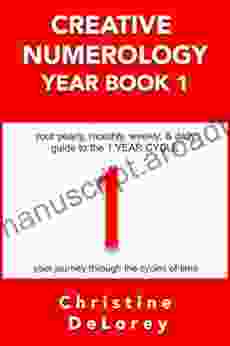
 Esteban Cox
Esteban CoxYour Yearly Monthly Weekly Daily Guide To The Year Cycle:...
As we navigate the ever-changing currents...
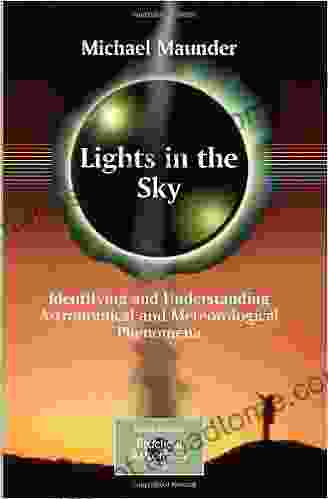
 George Orwell
George OrwellIdentifying and Understanding Astronomical and...
Prepare to embark on an extraordinary...
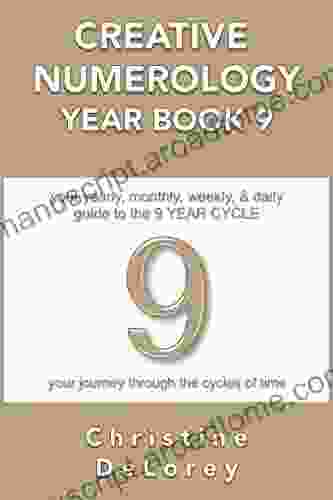
 Arthur Conan Doyle
Arthur Conan DoyleYour Yearly Monthly Weekly Daily Guide to the Year Cycle:...
Welcome to "Your Yearly Monthly Weekly Daily...
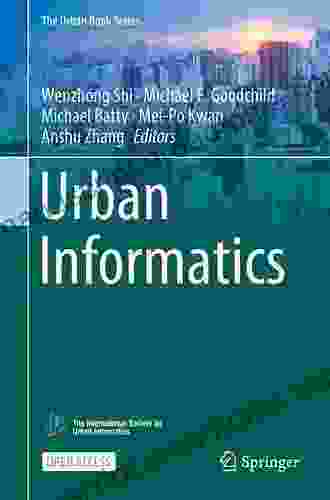
 Steve Carter
Steve CarterUrban Informatics: Unlocking the Secrets of Smart Cities...
An In-Depth Exploration of Urban...
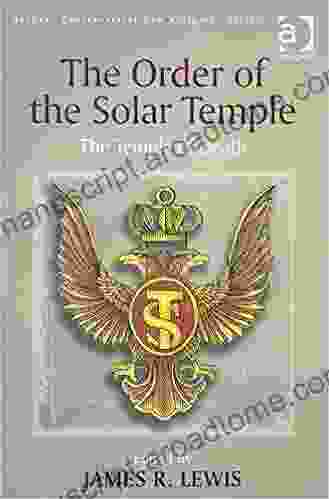
 Henry Hayes
Henry HayesUnveil the Secrets of the Order of the Solar Temple: A...
In the realm of secret...
4.4 out of 5
| Language | : | English |
| File size | : | 1917 KB |
| Text-to-Speech | : | Enabled |
| Screen Reader | : | Supported |
| Enhanced typesetting | : | Enabled |
| Word Wise | : | Enabled |
| Print length | : | 230 pages |


